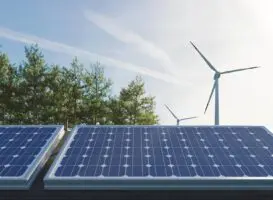Last year, Big Oil made a major play against Big Coal – attempting to accelerate the exit of coal fired generation from the global energy system in a move that was seen as a major strategic shift ahead of the Paris climate conference.
 Now, after Paris produced a surprisingly strong call to cap global warming as low as 1.5°C, Big Oil is shifting uncomfortably amidst a major push for the uptake of renewable energy, and to push oil and gas out of the system as quickly as possible in the search of zero net emissions.
Now, after Paris produced a surprisingly strong call to cap global warming as low as 1.5°C, Big Oil is shifting uncomfortably amidst a major push for the uptake of renewable energy, and to push oil and gas out of the system as quickly as possible in the search of zero net emissions.
This week, several of the Big Oil majors have faced intense scrutiny from shareholders, leading investors and activists over their climate change credentials and their risk of stranded assets. Their response has betrayed their marketing efforts.
“We cannot do it overnight (transition to renewables) because it could mean the end of the company,” Shell chief executive Ben van Beurden said at the annual general meeting on Wednesday.
And shareholders agreed, with 97 per cent voting againsta resolution to invest profits from fossil fuels to become a renewable energy company. Instead, an Beurden said the oil industry would need to spend up to $1 trillion a year in oil and gas.
“If collectively we find a way to stay within the 2 degree (Celsius limit), we will still need significant investment in oil and gas…I am talking about up to a trillion dollars every year,” he said.
Over in Texas, Rex Tillerson, the boss of oil giant ExxonMobil was also getting a grilling from shareholders, but was being just as intransigent, the Guardian reported.
Tillerson said cutting oil production was “not acceptable for humanity” as he fought off shareholders’ and activists’ attempts to force the company to fully acknowledge the impact of climate change and to take more action to address it.
Tillerson also argued that oil and gas would provide 60 per cent of the world’ss energy needs in 2040, and would need to invest trillions to do that.
He said Exxon had invested $US7 billion in green technology, but claimed that the science and technology had not yet achieved the breakthroughs needed to compete with fossil fuels.
“Until we have those, just saying ‘turn the taps off’ is not acceptable to humanity,” he said. “The world is going to have to continue using fossil fuels, whether they like it or not.”
Chevron also came under pressure from shareholders at its meeting in California, but rejected proposals for more concerted action on climate change.
Last tar, an NGO called Influence Map estimated that Shell, ExxonMobil and three trade associations spent US$114 million in 2014 alone trying to manipulate politicians and public discourse on climate change. It said the American Petroleum Institute spent $US65 million, followed by Exxon Mobil on $US27m and Shell on $US22m.
What was interesting, however, was that an estimated 41 per cent of Chevron shareholders voted in favor of the company providing an assessment of the portfolio against a 2°C climate change scenario, and 38.2 per cent of shareholders at Exxon Mobil voted for a similar proposal.







